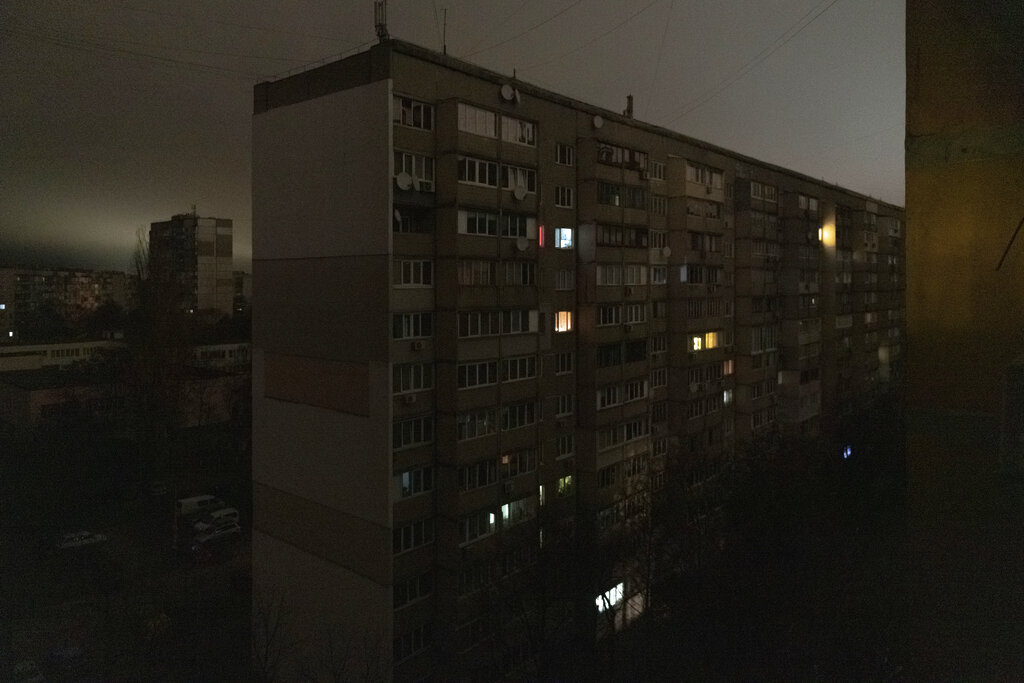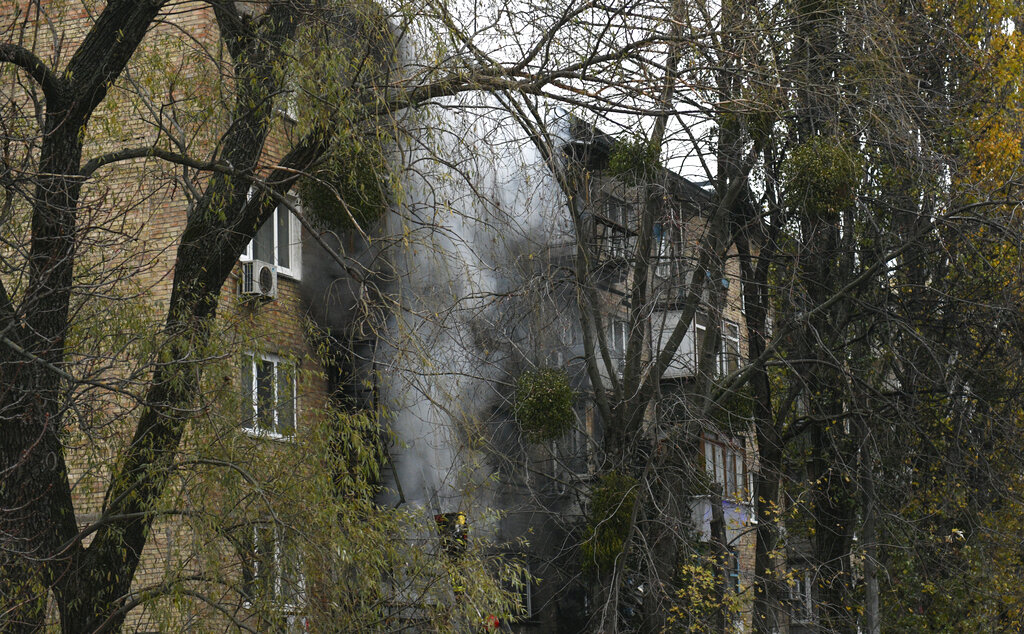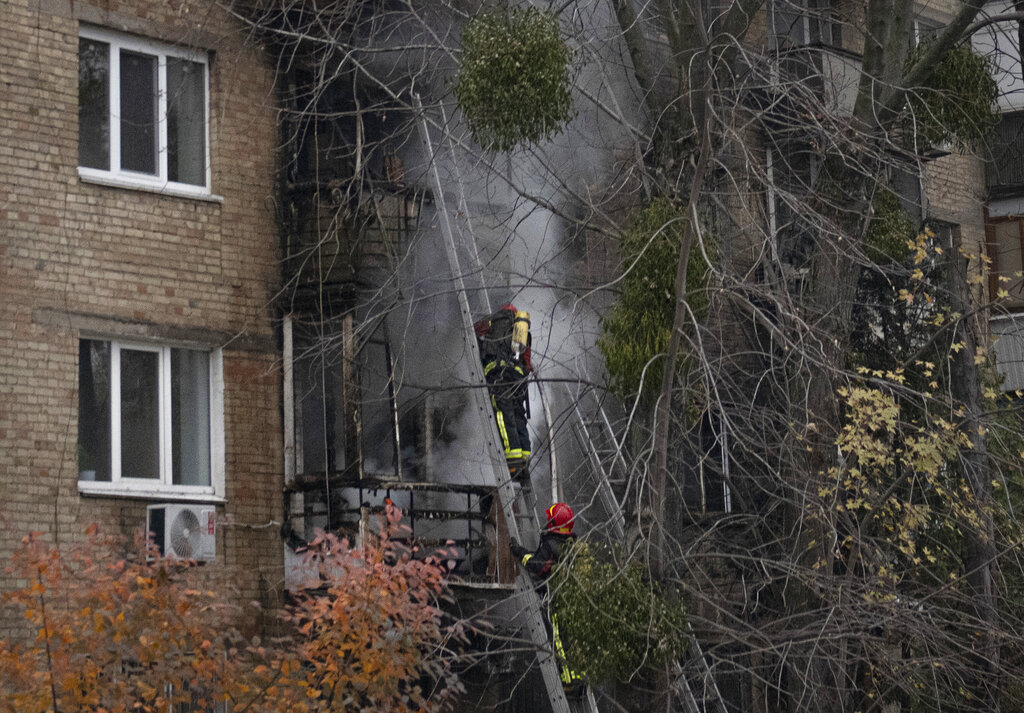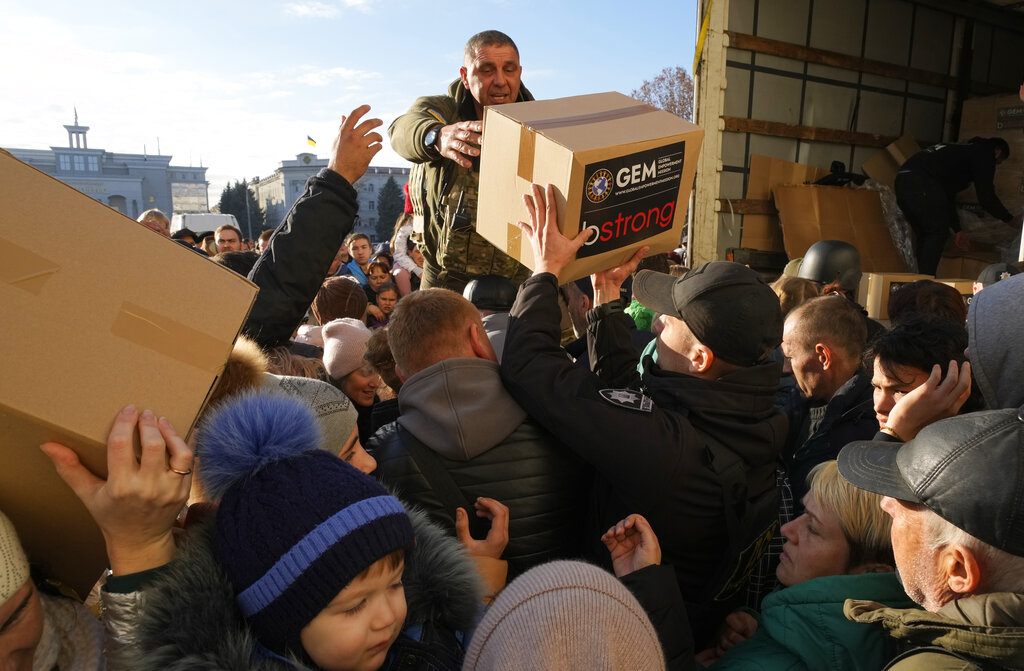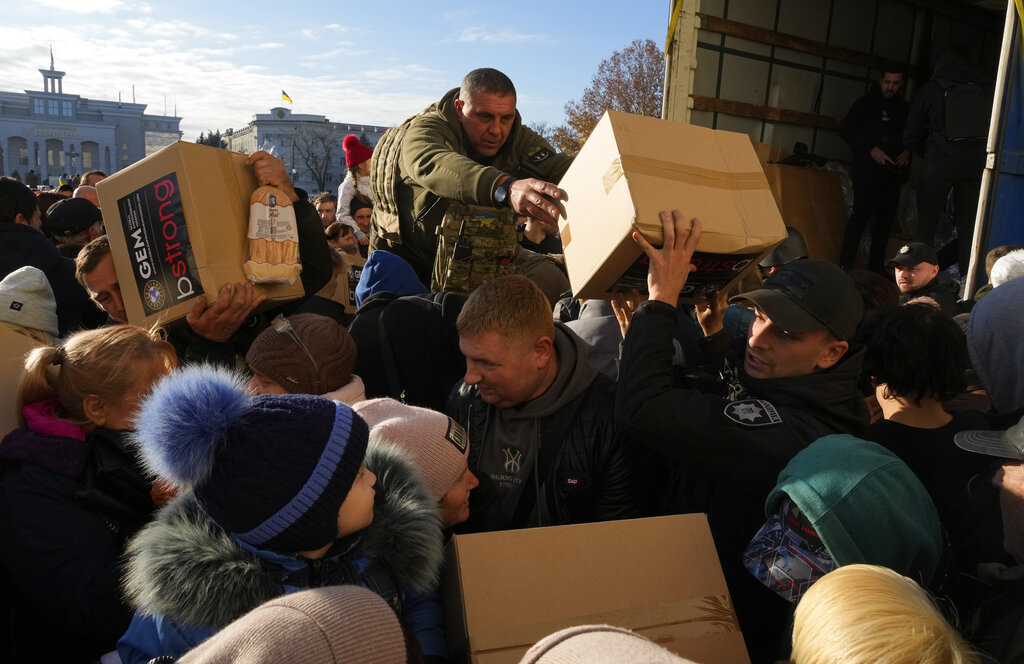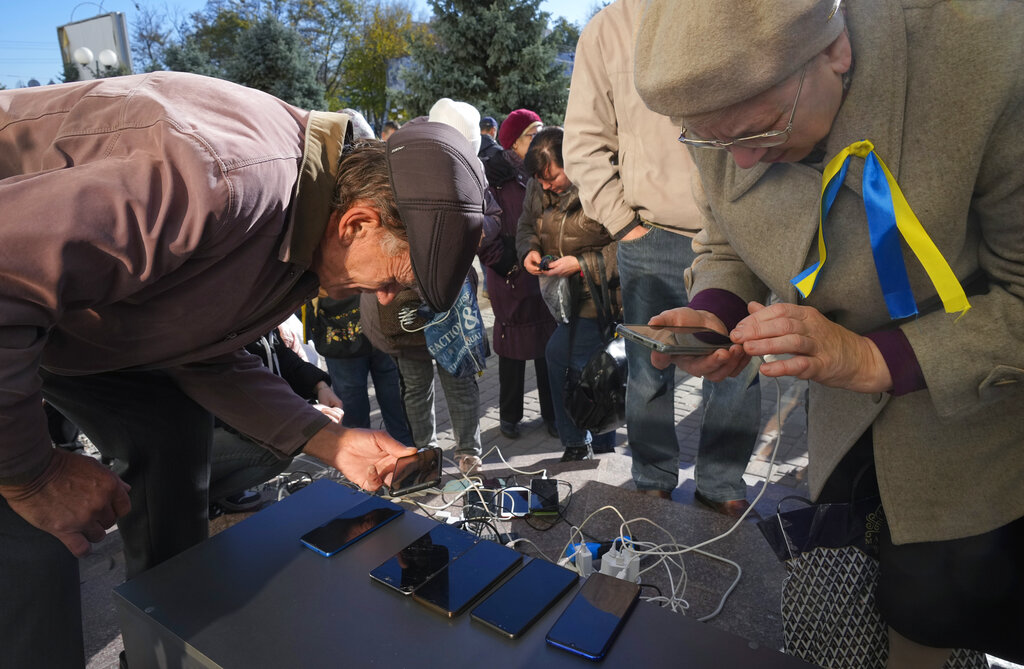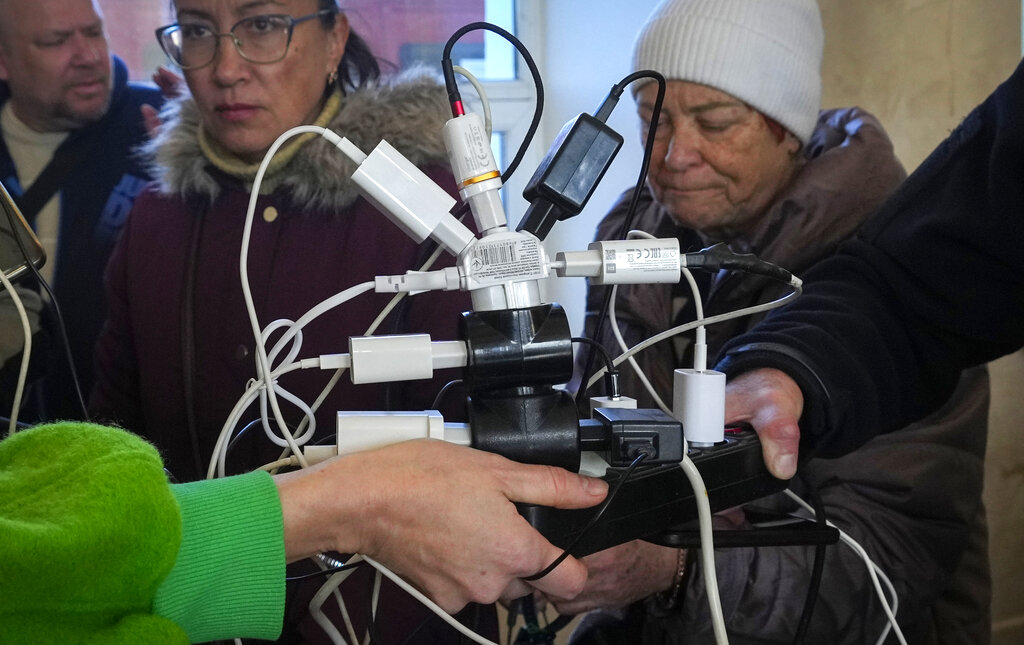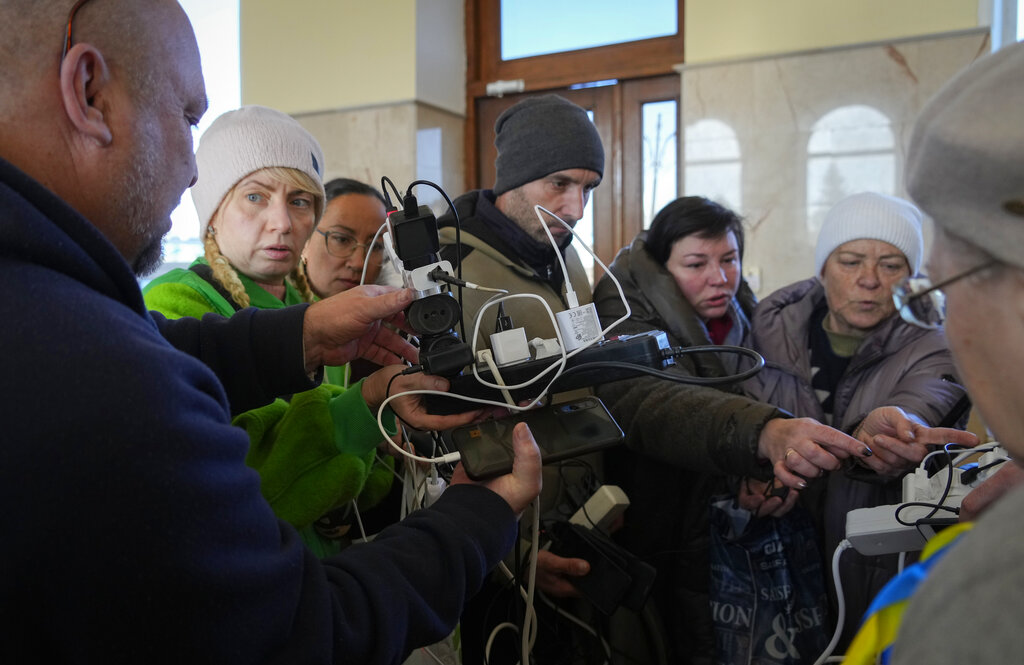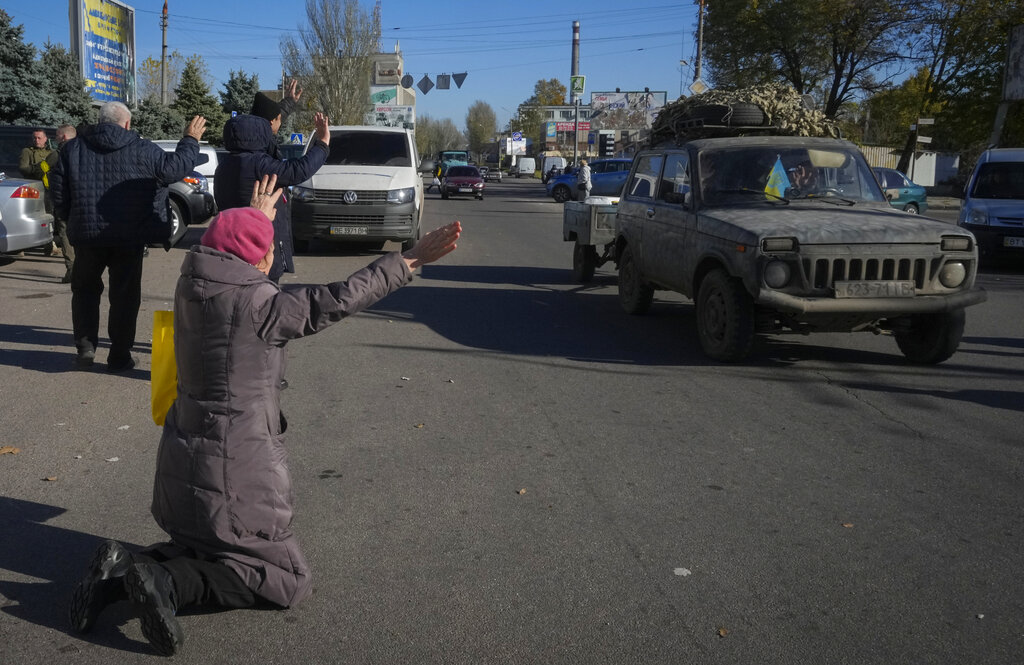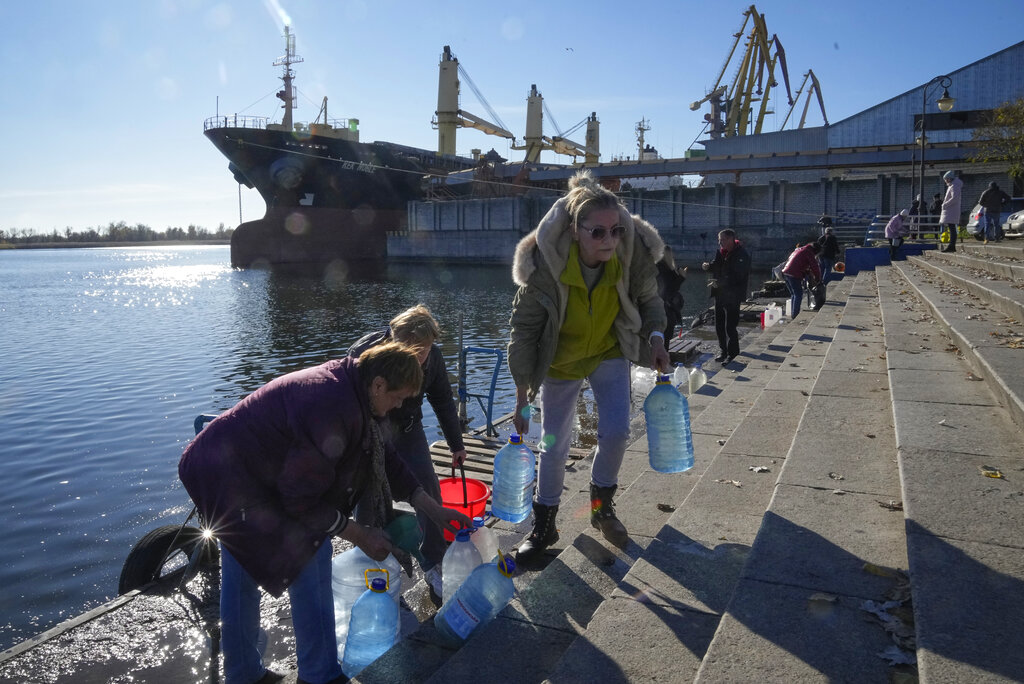Poland: Russian-made missile fell on our country, killing 2
WARSAW, Poland (AP) — Poland said early Wednesday that a Russian-made missile fell in the country’s east, killing two people, though U.S. President Joe Biden said it was “unlikely” it was fired from Russia.
The blast, which Ukrainian President Volodymyr Zelenskyy decried as “a very significant escalation,” prompted Biden to call an emergency meeting of G-7 and NATO leaders. A deliberate, hostile attack on NATO member Poland could trigger a collective military response by the alliance.
But key questions around the circumstances of the missile launch remained amid the confusion caused by a blistering series of Russian airstrikes across the nearby border in Ukraine, none larger than who fired it. Russia denied any involvement in the Poland blast.
Three U.S. officials said preliminary assessments suggested the missile was fired by Ukrainian forces at an incoming Russian one amid the crushing salvo against Ukraine’s electrical infrastructure Tuesday. The officials spoke on condition of anonymity because they were not authorized to discuss the matter publicly.
That assessment and Biden’s comments at the Group of 20 summit in Indonesia contradict information earlier Tuesday from a senior U.S. intelligence official who told the AP that Russian missiles crossed into Poland.
The Polish government said it was investigating and raising its level of military preparedness. Biden pledged support for Poland’s investigation.
Zelenskyy’s comments, delivered in an evening address to the nation, came hours after a senior U.S. intelligence official told The Associated Press that Russian missiles had crossed into Polish territory and killed two people.
A second person said that apparent Russian missiles struck a site in Poland about 15 miles from the Ukrainian border.
A statement from the Polish Foreign Ministry identified the weapon as being made in Russia. President Andrzej Duda was more cautious, saying that it was “most probably” Russian made but its origins were still being verified.
“We are acting with calm,” Duda said. “This is a difficult situation.”
Biden’s decision to convene an emergency meeting of the G-7 and NATO leaders upended schedules for the final day of the G20 meeting in Indonesia.
Meanwhile, NATO Secretary-General Jens Stoltenberg called the meeting of the alliance’s envoys in Brussels. The U.N. Security Council also planned to meet Wednesday for a previously scheduled briefing on the situation in Ukraine. The strike in Poland was certain to be raised.
Poland’s statement did not address whether the strike could have been a targeting error or if the missile could have been knocked off course by Ukrainian defenses.
In their statements, Poland and NATO used language that suggested they were not treating the missile blast as an intentional Russian attack, at least for now. A NATO statement called it a “tragic incident.”
If Russia had deliberately targeted Poland, it would risk drawing the 30-nation alliance into the conflict at a time when it is already struggling to fend off Ukrainian forces.
Polish media reported that the strike took place in an area where grain was drying in Przewodów, a village near the border with Ukraine.
The Russian Defense Ministry denied being behind “any strikes on targets near the Ukrainian-Polish border” and said in a statement that photos of purported damage “have nothing to do” with Russian weapons.
Polish Foreign Minister Zbigniew Rau summoned the Russian ambassador and “demanded immediate detailed explanations,” the government said.
Earlier in the day, President Joe Biden reaffirmed the United States’ “ironclad commitment” to NATO in a call with Duda. Biden offered his full support for the investigation and said the two leaders would remain in touch to determine next steps.
Pentagon spokesman Brig. Gen. Patrick Ryder said earlier Tuesday U.S. officials were aware of reports alleging a missile strike inside Poland and reiterated their previous stance on NATO allies.
“We’ve been crystal clear that we will defend every inch of NATO territory,” Ryder said.
On Tuesday, Russia pounded Ukraine’s energy facilities with its biggest barrage of missiles yet, striking targets across the country and causing widespread blackouts.
The barrage also affected neighboring Moldova, which reported massive power outages after the strikes knocked out a key power line that supplies the small nation, an official said.
The missile strikes plunged much of Ukraine into darkness and drew defiance from Zelenskyy, who shook his fist and declared: “We will survive everything.”
In his nightly address, the Ukrainian leader said the reported strikes in Poland offered proof that “terror is not limited by our state borders.”
“We need to put the terrorist in its place. The longer Russia feels impunity, the more threats there will be for everyone within the reach of Russian missiles,” Zelenskyy said.
Russia fired at least 85 missiles, most of them aimed at the country’s power facilities, and blacked out many cities, he said.
The Ukrainian energy minister said the attack was “the most massive” bombardment of power facilities in the nearly 9-month-old Russian invasion, striking both power generation and transmission systems.
The minister, Herman Haluschenko, described the missile strikes as “another attempt at terrorist revenge” after military and diplomatic setbacks for the Kremlin. He accused Russia of “trying to cause maximum damage to our energy system on the eve of winter.”
The aerial assault, which resulted in at least one death in a residential building in the capital, Kyiv, followed days of euphoria in Ukraine sparked by one of its biggest military successes — the retaking last week of the southern city of Kherson.
The power grid was already battered by previous attacks that destroyed an estimated 40% of the country’s energy infrastructure. Zelenskyy said the number of Ukrainians without power had fallen from 10 million to 2 million by Tuesday evening.
Russian President Vladimir Putin has not commented on the retreat from Kherson since his troops pulled out in the face of a Ukrainian offensive. But the stunning scale of Tuesday’s strikes spoke volumes and hinted at anger in the Kremlin.
By striking targets in the late afternoon, not long before dusk began to fall, the Russian military forced rescue workers to labor in the dark and gave repair crews scant time to assess the damage by daylight.
More than a dozen regions — among them Lviv in the west, Kharkiv in the northeast and others in between — reported strikes or efforts by their air defenses to shoot missiles down. At least a dozen regions reported power outages, affecting cities that together have millions of people. Almost half of the Kyiv region lost power, authorities said. Ukrainian Railways announced nationwide train delays.
Zelenskyy warned that more strikes were possible and urged people to stay safe and seek shelter.
“Most of the hits were recorded in the center and in the north of the country. In the capital, the situation is very difficult,” said a senior official, Kyrylo Tymoshenko.
He said a total of 15 energy targets were damaged and claimed that 70 missiles had been shot down. A Ukrainian air force spokesman said Russia used X-101 and X-555 cruise missiles.
As city after city reported attacks, Tymoshenko urged Ukrainians to “hang in there.”
With its battlefield losses mounting, Russia has increasingly resorted to targeting Ukraine’s power grid, seemingly hoping to turn the approach of winter into a weapon by leaving people in the cold and dark.
In Kyiv, Mayor Vitali Klitschko said authorities found a body in one of three residential buildings that were struck in the capital, where emergency blackouts were also announced by power provider DTEK.






